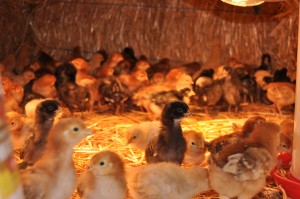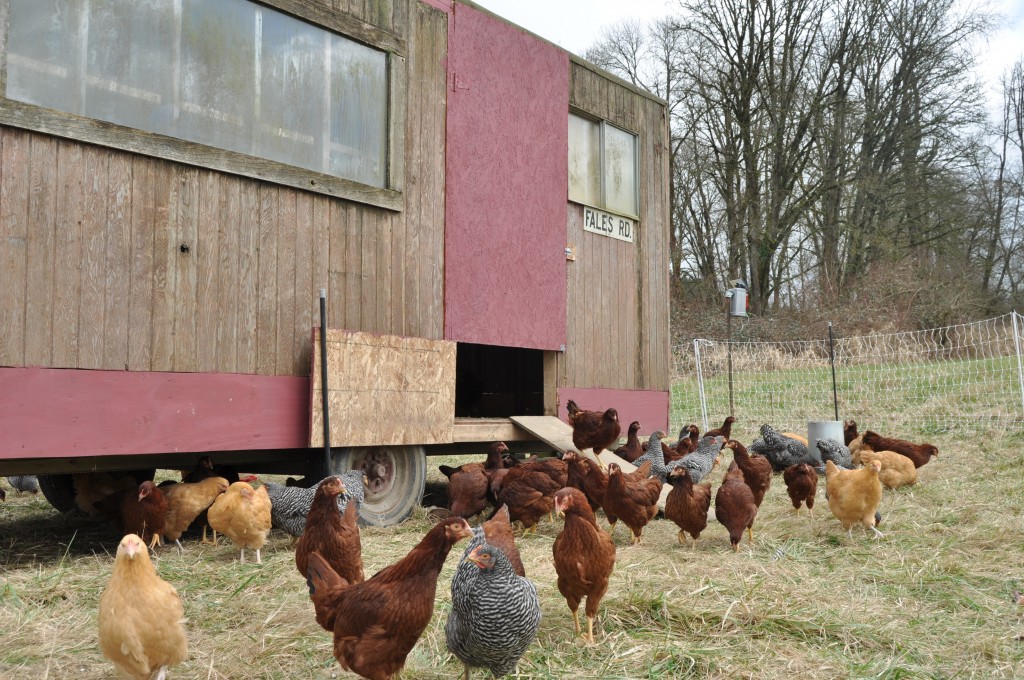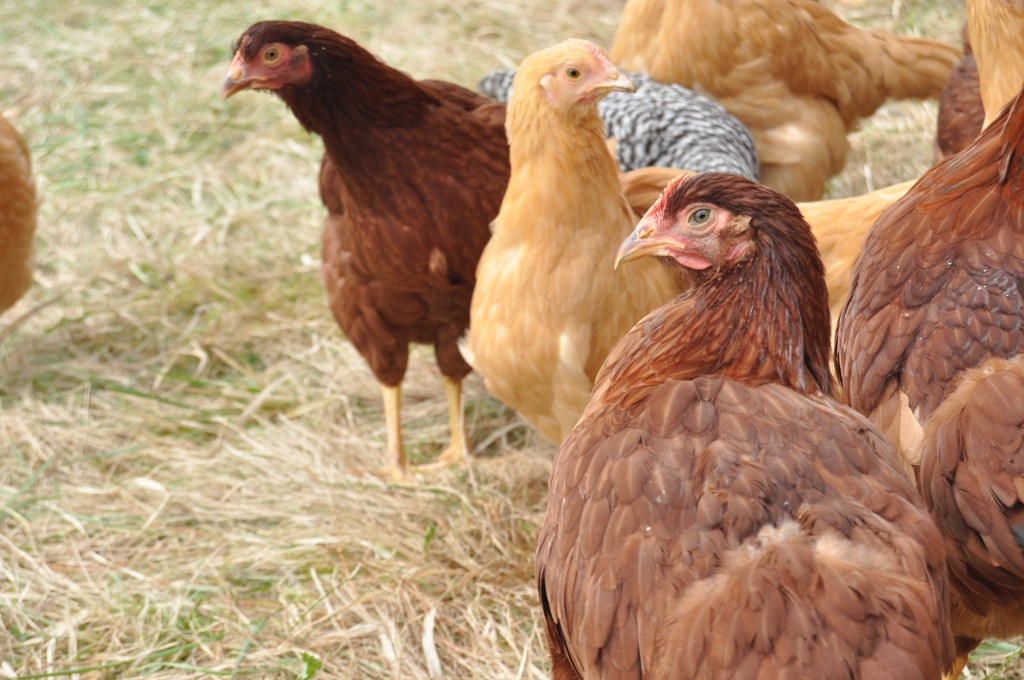For years I have pestered Jonathan about getting chickens in the city. His response was always “if we had more space, we could have chickens.” That day has come. No convincing needed. It’s obvious that chickens should be an integral part of our operations because when you farm without chemicals, chicken poop is a plant’s best friend.
I’ve always loved the image of pastured animals made popular by Joel Salatin via Michael Pollan in the Omnivore’s Dilemma. You have cows grazing (and pooping) in a field, followed by chickens who scratch up the cow pies and add their own poop. When the animals have eaten down the grasses, you move them to a fresh field and restart the process. Why use machines and burn diesel (and time) to tend the fields when animals can help control the grasses and weeds, and contribute to soil fertility at the same time? It’s a beautiful cycle that seems like a no-brainer for small farmers like us.
So we started a flock of egg-laying hens. By “egg-people” standards, it’s a small flock of about 200 birds; heritage varieties such as Rhode Island Red, Barred Plymouth Rock, and Buff Orpington. We also adopted a half dozen White Rock chickens from our farm hand Ross. They needed some room to roam so we happily found a spot for them to scratch and peck to their hearts’ content.

Just as luck would have it, our day-old chicks arrived during the sub-freezing weather at the beginning of December. We lost a few during the first couple of weeks but the remainder of the flock has held on strong. It’s been amazing to see them grow from tiny fuzzy chicks into nearly full-grown adults in just a matter of months. In a few weeks, we’ll have eggs galore. I can hardly wait.
They are strangely charismatic in a way I didn’t expect. When you approach them, some go running off in a million directions or just ignore you, but others are curious. They’ll come right up to check you out. Then, you get to look that chicken right in the eye and for a minute there’s a silent exchange. You realize that she’s more than just a bird. She is a steward of our land and a provider of food. I feel sad for the chickens who are treated like commodities.
But let’s not end on a low note. Here are a few pictures of our happy hens.

